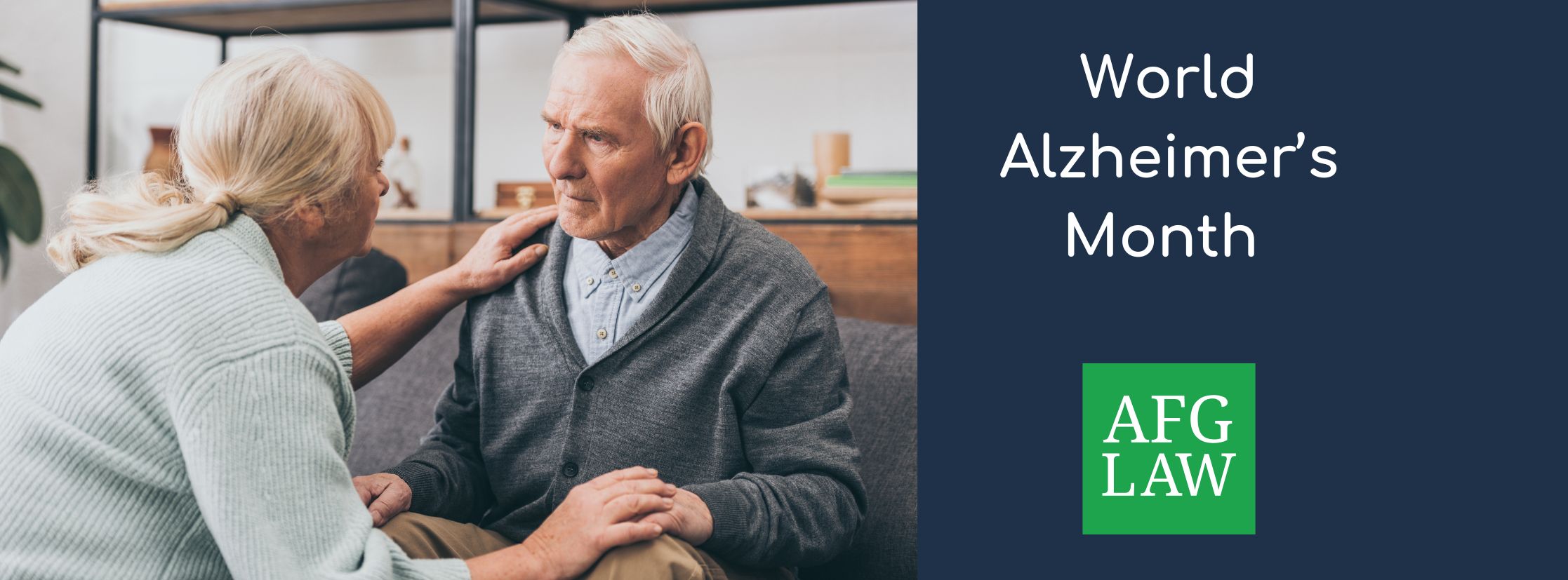When a person loses the mental capacity to make decisions for themselves, their interests are protected by the law, with responsibility falling to the Court of Protection. At AFG Law, our specialist Court of Protection solicitors help family members, carers, and advocates in understanding this complex legal system.
We help to ensure that vulnerable individuals get the protection and support they need and that your loved one’s best interests are safeguarded.
For specialist legal advice and support, speak to a Court of Protection lawyer from AFG Law today.
What is the Court of Protection?
The Court of Protection is a specialist court established under the Mental Capacity Act 2005. The role of this Court is to make decisions on behalf of people who lack the mental capacity to make specific decisions for themselves. This could be due to conditions like dementia, brain injury, severe learning difficulties, or mental illness.
The court deals with issues such as:
- Decisions about property, financial affairs, and healthcare
- Appointing a deputy or attorney to act on behalf of someone who lacks capacity
- Authorising one-off decisions (e.g., selling a home)
- Ruling on disputes over Lasting Powers of Attorney
- Handling serious medical treatment cases (including life-sustaining treatment)
- Resolving disagreements between families, carers, and professionals
The court’s guiding principle in Court of Protection cases is always the best interests of the individual who lacks capacity.
How Does the Court of Protection Work?
A Court of Protection application provides the court with details of the individual in question’s expenditure and income. The deputy then completes a declaration form; a medical certificate is also required and is usually completed by the person’s GP.
The process can take some time but our expert court of protection solicitors will keep you fully up to date at every stage of the process.
Once the court makes an order the deputy is authorised to deal with all aspects of the person’s finances. These include day to day responsibilities such as collecting benefits and paying bills.
When is a Court of Protection Solicitor required?
A Court of Protection Solicitor may be required in circumstances where a loved one or client can no longer make decisions for themselves. The legal process can quickly become overwhelming and difficult to deal with without help. A Court of Protection solicitor can provide expert guidance, representation, and peace of mind in these situations.
Common reasons to consult a solicitor include:
- Deputyship applications – If no Power of Attorney is in place, you may need to apply to the Court of Protection to become someone’s legal deputy.
- Contested applications or disputes – Disagreements over who should be deputy or what decisions are in the person’s best interests.
- Ongoing deputy support – Deputies have complex responsibilities. A solicitor can help you stay compliant and avoid costly mistakes.
- Statutory wills and gifts – If someone lacks capacity to make a will or large financial gifts, the court must approve it.
- Health and welfare decisions – These are sensitive and sometimes urgent cases, such as disagreements over care homes or medical treatment.
Every case is different, and having the right Court of Protection team can make a significant difference to the outcome.
What is the Role of a Deputy?
A lay deputy is someone appointed by the Court of Protection to manage a person’s affairs when there is no valid Power of Attorney. Deputies can be appointed for:
- Property and financial affairs – Managing money, paying bills, maintaining assets
- Health and welfare – Making decisions about medical treatment, care, and living arrangements (though these are less commonly granted)
Deputies must act in the best interests of the person and comply with legal duties, including:
- Keeping accurate records
- Submitting annual reports to the Office of the Public Guardian
- Seeking court approval for major decisions (e.g., selling a house, gifting money)
Being a deputy can be demanding. AFG Law provides expert support to ensure deputies understand their obligations and stay on the right side of the law.
Guidance Under the Mental Capacity Act
Everything the Court of Protection does is guided by the Mental Capacity Act 2005. The Act provides guidance for assessing capacity and making decisions.
The key guiding principles of the Mental Capacity Act include:
- A person is assumed to have capacity unless proven otherwise.
- All practical steps must be taken to help them make a decision.
- People are allowed to make unwise decisions if they have capacity.
- Anything done must be in the person’s best interests.
- The least restrictive option must be chosen.
Capacity is decision-specific; someone may lack capacity to manage finances but still be able to decide where they want to live. Solicitors must ensure that assessments are lawful, proportionate, and based on evidence.
Lasting Powers of Attorney (LPA) vs Court of Protection
Many confuse Lasting Powers of Attorney with Court of Protection orders. However, there are key differences, as outlined below:
- Lasting Power of Attorney (LPA): An LPA is made while the person still has capacity. The person chooses who will make decisions for them in future.
- Court of Protection: The Court of Protection steps in after capacity is lost and no valid LPA exists.
If a loved one is already struggling with decision-making and no LPA is in place, the Court of Protection becomes the only route.
AFG Law helps with both LPAs and Court of Protection matters.
Statutory Wills
Statutory Wills are made for individuals who lack testamentary capacity. To have a statutory Will drafted an application must be compiled together with a draft Will based on evidence drawn from the family and others. The aim of a statutory Will is to create a Will for the person in question that matches as closely as possible the Will they would have made if they had the capacity to do so themselves.
Emergency Applications and Serious Medical Treatment
In urgent cases, such as life-threatening medical decisions or safeguarding concerns, the Court of Protection can act quickly. Emergency hearings may take place in a matter of days, or even hours, depending on the circumstances.
AFG Law’s solicitors can make emergency applications for:
- Urgent medical procedures
- Protection from abuse or exploitation
- Interim orders while longer-term decisions are made
These cases often require sensitive handling and rapid legal action. Our team has the experience to act fast while keeping the person’s rights and wellbeing front and centre.
Speak to a Court of Protection Solicitor at AFG Law
If you are based in Bolton or the North West and need help with a close friend or family member who is no longer able to manage their own finances, contact our private client services team privateclients@afglaw.co.uk for further information or call us on 01204 920106.
At AFG Law, our Court of Protection solicitors offer:
- Expert legal advice grounded in years of experience
- A sensitive, client-first approach
- Help with both one-off applications and ongoing deputy support
- Transparent fees and clear communication every step of the way
We work with families, local authorities, care professionals, and advocates across England and Wales.
We know that dealing with mental capacity issues can be stressful, confusing, and emotionally exhausting. That’s why we provide more than just legal advice, we offer support, clarity, and practical solutions.
Whether you’re facing a complex capacity dispute, need to apply for deputyship, or want guidance on managing someone’s finances legally, we’re here to help.










